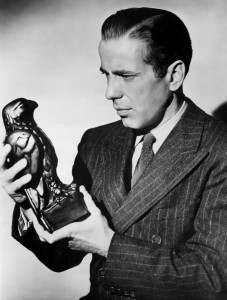 I finished drafting my android series of novels. The first is being shopped around by an agent (fingers crossed), and the last one needs another edit for voice. But they exist.
I finished drafting my android series of novels. The first is being shopped around by an agent (fingers crossed), and the last one needs another edit for voice. But they exist.
What next? I needed to rest. Finishing a novel is like surviving a perilous journey. You can’t just start another one a day later. For a few days afterward, I have tiny ideas occur to me at odd times of day, like “Wait. I can’t use that phrase – it’s a cliché.”
For example, I inadvertently had a character say, “No, not even a little bit.” Then I heard some airhead pundit on TV use that phrase, “not even a little bit,” and it rang a bell and I understood that I’d written it in thoughtlessly. A random element of the just-completed work rattling around in my head.
Worse, when I went in to search for “not even a little bit” I discovered a writing tic I hadn’t noticed, my overuse of “a little” as a modifier. In dozens and dozens of places in the manuscript I’d written things like “He moved his head a little to the right.” It’s not even very descriptive. How much is “a little?”
I deleted about half the instances of “a little” and changed most others to more precise modifiers, like “a half-inch,” or “imperceptibly.” Or I’d simply have the character “edge” or “slide” or “inch” rather than generically “move.” Adverbs and adjectives are very often buttresses for weak, generic verbs and nouns, but it’s hard to write the novel if you get hung up on details like that.
After a week of such torment, the demons went quiet and I was ready for the Next Big Thing (NBT). I have a long NBT document filled with ideas that draw me, and I studied them. I settled on an idea that was not the most exciting or interesting, but something I could accomplish. Again it would be an examination of human consciousness but this time, for a mirror, instead of an android, the contrast character would be a space alien. I know that’s been done a million times, but never to my satisfaction.
The typical space alien adopts “fish out of water” mode to highlight human contradictions, paradoxes, and idiocies. “Starman” is an example, as was “Mork and Mindy.” “ET: The Extraterrestrial” was little more than an exercise in sentimentality. No interesting ideas going on there. I want to focus on the deeper recesses of how the human mind works, not just spotlight cute anomalies in thinking and social interaction.
In particular, my ET would have insight into the function of the body, something that mystifies humans. We don’t understand our bodies and often feel alienated from them. The body does things we don’t intend, like fall down, hit a foul ball, strike a wrong note, twitch, get sick and old, and of course, it dies. Conversely, it does not do many of the things we do intend, like perform well, effortlessly, and without pain, relocate us quickly in space, perceive the world accurately, respond appropriately, sleep on command, accomplish reproduction and other social interactions. There’s no hope at all for flying, invisibility, or superpowers.
Would it be better not to have a body? What would that be like? What is the purpose of the body, after all? Is it merely to reproduce then die like a mosquito or a salmon? If that’s the case then human consciousness in all its glory is superfluous. “We,” the self-aware conscious ones, are merely taking a biological ride like a bunch of sight-seers. Why bother with consciousness at all? We’d be happier as unthinking insects who really know how to get the biological job done.
So that would be my topic, because I’ve given it some thought before, having self-published a book on the subject that nobody has read (The Purpose of the Body: bit.ly/Purpose-Body). I decided I should be writing novels that had something to say. Mere escapist stories are more fun but ultimately seem pointless. I’m not sure why I feel that way. But that’s just me, and I decided I should write what is uniquely me. The android series was didactic also, attempting to show up various aspects of human consciousness.
I struggled for a while with what to do with the ET because I couldn’t see how I could write a compelling character arc. He’s an alien, by definition. Where would the reader catharsis come from? Sure, I could make him highly humanoid and let anthropomorphism take its course. He could fall in love, or want to become a human. Aaaw! But that wouldn’t accomplish what I want – for him to be a contrast character who could explain the function of the body.
Finally I realized he couldn’t be the main character. I had to invent another main character, the physician who would discover him. The M.D. would take the hero’s journey and develop the character arc that readers could understand. But where did that leave ET? Certainly he’s not the antagonist. (He comes in peace – really.) So I invented an antagonist to MC, and then saw that ET is nothing more than the Maltese Falcon, the Hitchcockian MacGuffin.
With that settled, I easily generated thirty-five pages of preliminary notes on characters, plot and locations. I still need to strengthen the MC’s journey because I don’t think the screws have been tightened on him enough. I can’t have him sailing through the adventure without staring into the abyss. But as soon as I fix that, I’ll be ready to write that daunting first sentence on the first page of the first chapter.
